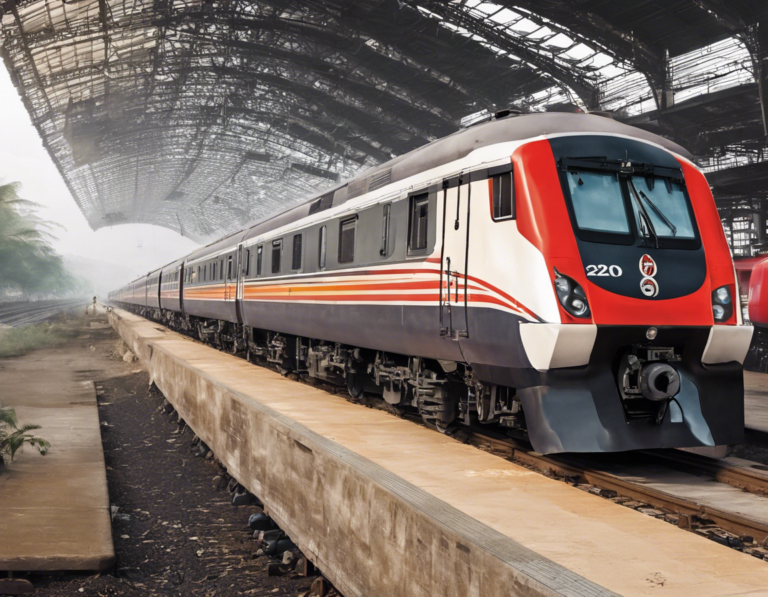
The railway industry is a significant sector that offers various job opportunities to individuals across the globe. With the recently announced 2024 railway job vacancies, there is a surge of interest and excitement among job seekers looking to embark on a career in the railway sector. In this comprehensive guide, we will explore the various job roles available in the railway industry, the qualifications required, and how aspiring candidates can prepare themselves to secure a job in this dynamic field.
Job Roles in the Railway Industry
The railway industry offers a diverse range of job roles, catering to individuals with different skill sets and interests. Some of the key job roles in the railway sector include:
1. Locomotive Engineer
Locomotive engineers are responsible for operating trains and ensuring the safe transportation of passengers or cargo. They must have a deep understanding of railway operations, signaling systems, and safety protocols.
2. Railroad Conductor
Railroad conductors are in charge of coordinating the activities of the train crew, ensuring compliance with schedules, and implementing safety procedures during train operations.
3. Railroad Signal Technician
Signal technicians are responsible for installing, maintaining, and repairing signaling systems along the railway tracks to ensure the safe movement of trains.
4. Track Maintenance Worker
Track maintenance workers are tasked with inspecting and repairing railway tracks, switches, and crossings to maintain the safety and efficiency of the rail network.
5. Rail Traffic Controller
Rail traffic controllers monitor and coordinate train movements, track utilization, and signaling systems to ensure the smooth flow of railway traffic and prevent accidents.
Qualifications and Skills Required
To secure a job in the railway industry, candidates must possess specific qualifications and skills. Some of the common requirements for railway jobs include:
- A high school diploma or equivalent
- Vocational training or a degree in a relevant field such as engineering or transportation
- Certification in railway operations or safety protocols
- Strong communication and problem-solving skills
- Ability to work in a fast-paced and high-pressure environment
- Physical fitness and the ability to work outdoors in various weather conditions
How to Prepare for a Railway Job
If you are aspiring to work in the railway industry, here are some tips to help you prepare for a career in this field:
-
Gain Relevant Education and Training: Enroll in courses or programs related to railway operations, engineering, or transportation to acquire the necessary knowledge and skills.
-
Obtain Certifications: Consider obtaining certifications in railway safety, operations, or specific job roles to enhance your credibility and marketability to employers.
-
Gain Experience: Seek opportunities for internships or entry-level positions in the railway industry to gain hands-on experience and familiarize yourself with the work environment.
-
Network: Connect with professionals in the railway industry, attend industry events, and join relevant associations to expand your network and learn about job opportunities.
-
Prepare for Interviews: Practice common interview questions related to railway operations, safety protocols, and problem-solving scenarios to impress potential employers during the interview process.
Frequently Asked Questions (FAQs)
1. What are the benefits of working in the railway industry?
Working in the railway industry offers job stability, competitive salaries, opportunities for career advancement, and the chance to contribute to an essential transportation system.
2. Is prior experience necessary to land a job in the railway sector?
While prior experience can be beneficial, many entry-level positions in the railway industry welcome candidates with the right qualifications and trainable skills.
3. What are some of the challenges of working in the railway industry?
Challenges in the railway industry may include long working hours, exposure to outdoor elements, adherence to strict safety protocols, and the need for continuous training and skill development.
4. Are there opportunities for growth and advancement in the railway sector?
Yes, the railway industry offers various opportunities for career growth, with avenues for advancement to supervisory, managerial, or specialized roles based on performance and experience.
5. How can I stay updated on railway job vacancies and opportunities?
Stay informed about railway job vacancies by regularly checking job portals, company websites, industry publications, and networking with professionals in the railway sector.
In conclusion, the 2024 railway job vacancies present a promising opportunity for individuals to pursue a rewarding career in the railway industry. By understanding the diverse job roles available, acquiring the necessary qualifications and skills, and preparing effectively, aspiring candidates can increase their chances of securing a job in this dynamic and essential sector. Whether you aspire to become a locomotive engineer, railroad conductor, signal technician, or traffic controller, the railway industry offers a range of exciting career paths for motivated individuals to explore and thrive.